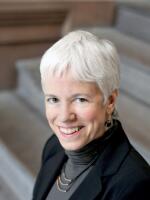There’s growing unease over New York Governor Andrew Cuomo’s tax freeze plan. 100 local government officials have signed a letter opposing the plan, including Syracuse Mayor and state Democratic Party Co-Chair Stephanie Miner. And there are signs that the legislature may modify what critics have called an overly complex proposal when the Senate and Assembly release their one house state budgets.
The lobby groups for the state’s counties, cities, and school boards are voicing numerous concerns. Tim Kremer is with the State School Boards Association.
“We find this whole thing to very complex, it’s going to be costly to administer," said Kremer. “We have a ton of questions, and we don’t have a lot of good answers.”
Cuomo’s tax freeze plan requires a lot of cooperation from local governments. In year one of the program, if they hold their spending increases to New York’s 2% tax cap, then the state pays for both the local government’s additional spending, and the difference in the tax increase to homeowners, in the form of a rebate check. In year two, local governments and schools must prove they have collaborated on services or merged in order to get the additional state aid, which will once again be refunded to taxpayers in checks in the mail.
Peter Baynes, with the New York Conference of Mayors, says the schools and local government leaders have come up with a simpler plan.
Baynes says the state should just make the payment directly to the local government first, to keep the tax bills down in the first place.
“Rather than have taxpayers front an increase in property taxes to their local government and then await a rebate check from the state,” Baynes said.
He says the home owners would never have to pay the tax increase in the first place and would not to wait for a check in the mail.
However, Baynes and Kremer concede, a check from state government officials appearing in taxpayers’ mailboxes in the fall, just before elections, may have its appeal to New York’s politicians.
“Certainly there are the political interests here,” Kremer said.
But Kremer says he believes Cuomo is “sincere” in wanting to reduce the state’s highest in the nation property taxes.
The budget watchdog group Citizens Budget Commission also has some problems with the governor’s tax freeze plan. The Commission’s Betsy Lynam agrees the complex design will result in “administrative headaches”, but she says it also has another flaw- the $1 billion dollars required to fully fund the program does not yet exist, it’s part of a future projected budget surplus predicated on the state holding the line on most spending for next three years.
“It’s premature,” Lynam said. “It’s too early to spend the money.”
And she says the freeze is skewed toward “more affluent” taxpayers, who would see a larger rebate check because they have more expensive houses and pay more property taxes.
The governor’s budget office says the plan is not as complex as critics portray it. And they say they there is money in this year’s budget to have the first part of the plan up and running, and be sending out rebate checks on school taxes this fall.
In a sign that Governor Cuomo is sensing the growing opposition, the governor has released two ads in recent days, one for upstate homeowners, and one aimed at downstate homeowners, touting the benefits of his plan, and making it sound easy.
“My plan will cut property taxes by requiring local government to work together,” Cuomo says in the ad. “So please tell your legislator to support my plan.”
Lawmakers may need some convincing. State Senate Finance Committee Chair John DeFrancisco, a supporter of property tax cuts, summed up Cuomo’s plan this way at a recent budget hearing featuring the governor’s tax commissioner.
“It’s a nightmare,” DeFrancisco said. “And you have to administer it.”
Assembly Speaker Sheldon Silver says he’d prefer what’s known as a circuit breaker property tax relief plan instead, that offers higher tax rebates to lower income homeowners who pay a larger percentage of their earnings in taxes.
“You have to, for example, have geographic equity,” said Silver. “You have to have economic balance to it.”
Silver says he thinks the plan needs some changes.
The governor’s chief of staff, Larry Schwartz, issued a statement in response to the letter from the 100 local officials opposing Cuomo’s tax freeze plan.
“It’s clear that some local officials don’t want to be held accountable by taxpayers for staying within the cap and taking action to share services, reduce costs, and lower property taxes,” Schwartz said. “Under the Governor’s plan, local governments and schools will be responsible for taking the right steps to get their fiscal houses in order, much like the state has already done.”
A spokesman for the governor, Rich Azzopardi, points out that a recent Siena College poll found 73% of New Yorkers support a tax freeze.





